The military-appointed, 249-member Senate and lower house parliamentarians aligned with the outgoing conservative coalition led by coup-maker General Prayut Chan-ocha either abstained or voted down Pita's bid, which needed to secure at least 375 of 749 votes.
Today's tally saw 324 votes in favor of Pita, 182 against and 199 abstentions. A second vote is scheduled for July 19, at which the second-ranked Peua Thai could, and some insiders say, will likely put forward its top candidate, property tycoon Srettha Thavisin. A third and final vote could take place the following day.
The political jockeying is expected to intensify in the days ahead as Pita will need to explain to coalition partners why he believes he can win a second vote after losing today. Many believe the Senate and other conservative MPs would be more willing to vote for the non-confrontational Srettha, who Peua Thai insiders have cast as their“compromise” candidate.
Today's vote came a day after the Election Commission submitted a highly-anticipated case to the Constitutional Court against Pita over his alleged shareholding in a media company, which is banned under Thai election law. The EC requested that Pita be suspended as a lawmaker while the case is pending.
A separate case, also filed and accepted on Wednesday by the Constitutional Court, charges Pita and his MFP of trying to“overthrow” the monarchy through their call to reform the kingdom's lese majeste law, which shields the king, queen, regent and heir apparent from criticism through maximum 15-year prison penalties.
The shareholding charge, if heard under Article 151 of the election law, could land Pita in prison and ban him from politics for a decade. The lese majeste case, filed by a private individual but nonetheless accepted by the high court, threatens to dissolve the entire MFP and strip its MPs of their seats.
The vote and charges have upended the kingdom's politics just two months after MFP's shock election win on May 14, where the upstart party won 151 out of 500 lower house seats. Peua Thai, the until now anti-military party shadow-led by coup-toppled, self-exiled ex-premier Thaksin Shinawatra, had predicted a“landslide” win of 300 plus seats but placed a close, if not disappointing, second with 141.
Latest stories

why china will draw investors despite economic warning signs
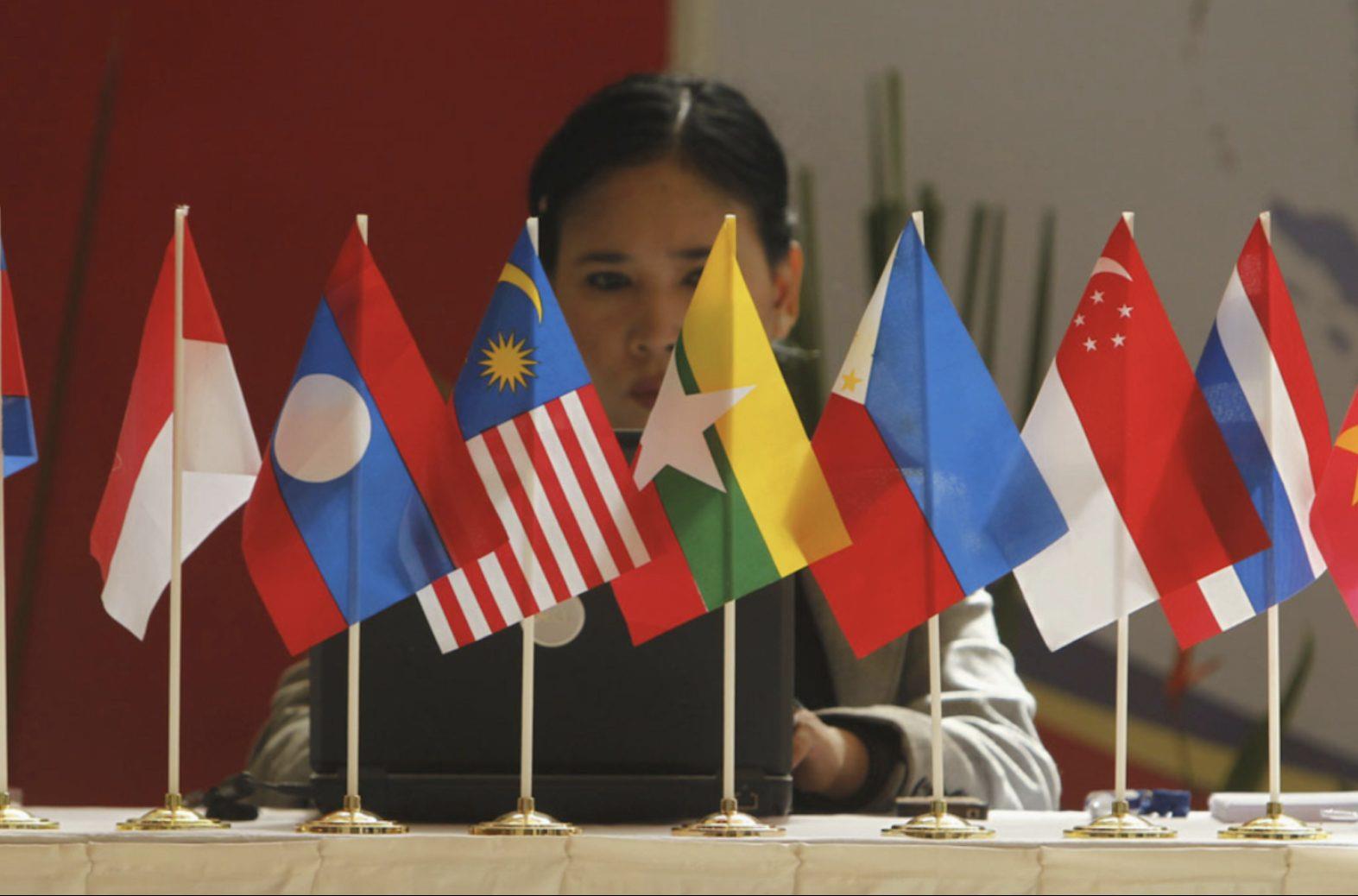
the danger of us-china hedging in se asia

long, slow death of indonesia's national plane dream
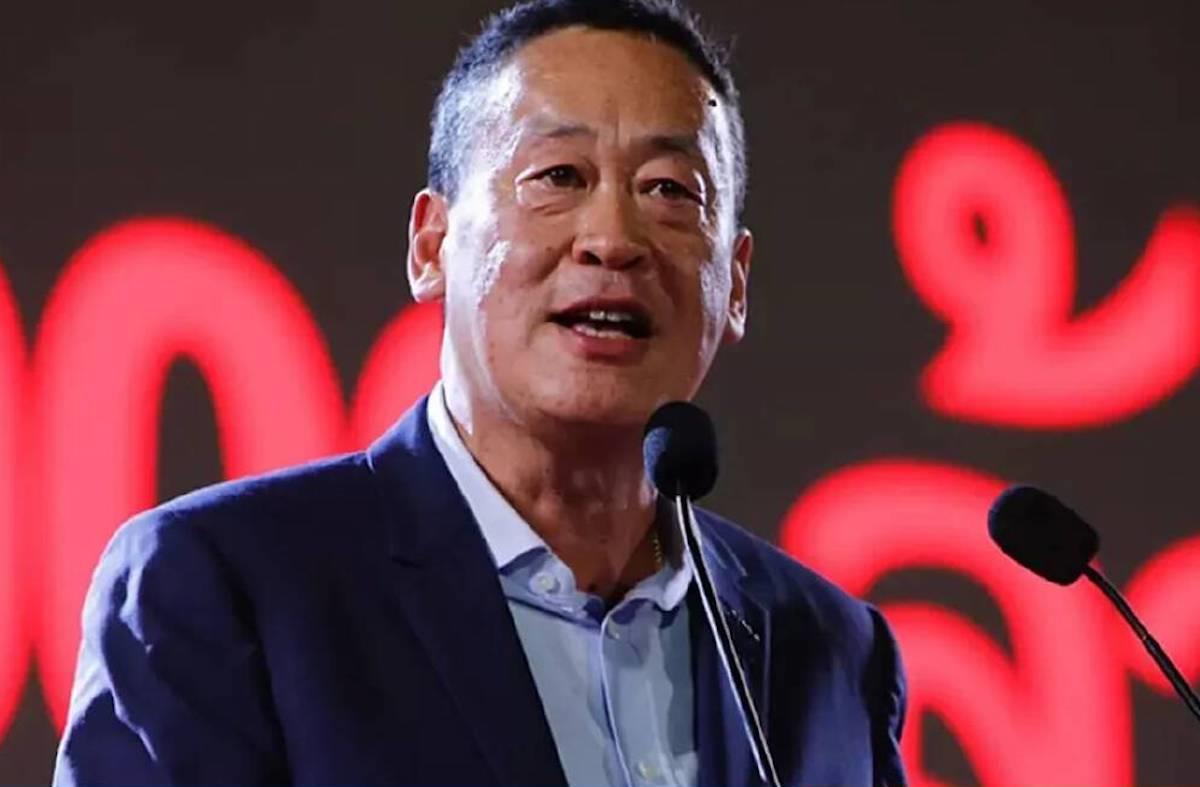
Srettha Thavisin could be next in line for the Thai premiership. Image: Twitter
The military-aligned Palang Pracharat and United Thai Nation parties were both trounced, placing a distant fourth and fifth with 40 and 36 seats respectively. The result was a clear clarion call to end nearly a decade of Prayut's military-dominated rule, both in coup-installed and elected incarnations. Tellingly, Bangkok, the heart of Thai political, economic and royal power, voted MFP in 35 of 36 seats.
Prayut announced his retirement from politics this week and is widely expected to assume the presidency of the Privy Council, a royalist body that provides advice to the king and which under its previous leader was a major center of autonomous royal power that has since been diminished during Maha Vajiralongkorn's new reign.
He leaves with his monarchy-upholding legacy under threat. Move Forward's hard drive to amend the lese majeste law, defined by Article 112 of the penal code, has put the palace front and center of the kingdom's intensifying imbroglio pitting conservative and progressive forces – in what many see as an epic struggle for nothing less than the nation's soul.
Many royalists believe MFP's call to amend the law's application and punishment is the thin end of a wider wedge aimed at diminishing other monarchal powers and prerogatives, including royal control over the ultra-rich Crown Property Bureau and top military units that were recently subsumed into the king's private guard.
It was lost on few numerologically-inclined Thais that MFP and Peua Thai each won precisely 112 constituency seats at the May poll, i.e. the number associated with the lese majeste law, with the former outpacing the latter in the separate party list vote to arrive at a winning 151.
The cosmic and other similarities largely stop there, though. While the two parties are now loosely in coalition, that could break down quickly after today's parliamentary vote against Pita and with the now very real possibility that MFP could be dissolved by court order on royal grounds in the weeks or months ahead.
The stage is already well-set for a political schism. MFP and Peua Thai were at daggers drawn for weeks over which should appoint the House Speaker, which ultimately went to a junior coalition partner to break the impasse.
Peau Thai had earlier refused to sign a MFP MOU requiring coalition partners to support its lese majeste and wider progressive reform agenda. Certain Peua Thai machine politicians, namely ex-cop and former deputy premier Chalerm Yubamrung, have taken pee-nong (elder-junior) potshots at MFP's youthful inexperience.
Peua Thai is widely believed to have stumbled at the polls due to popular perceptions it may enter a coalition with the military-aligned PPRP to form a“unity” government that would seek to bury the hatchet on two previous Shinawatra-toppling coups in 2006 and 2014.
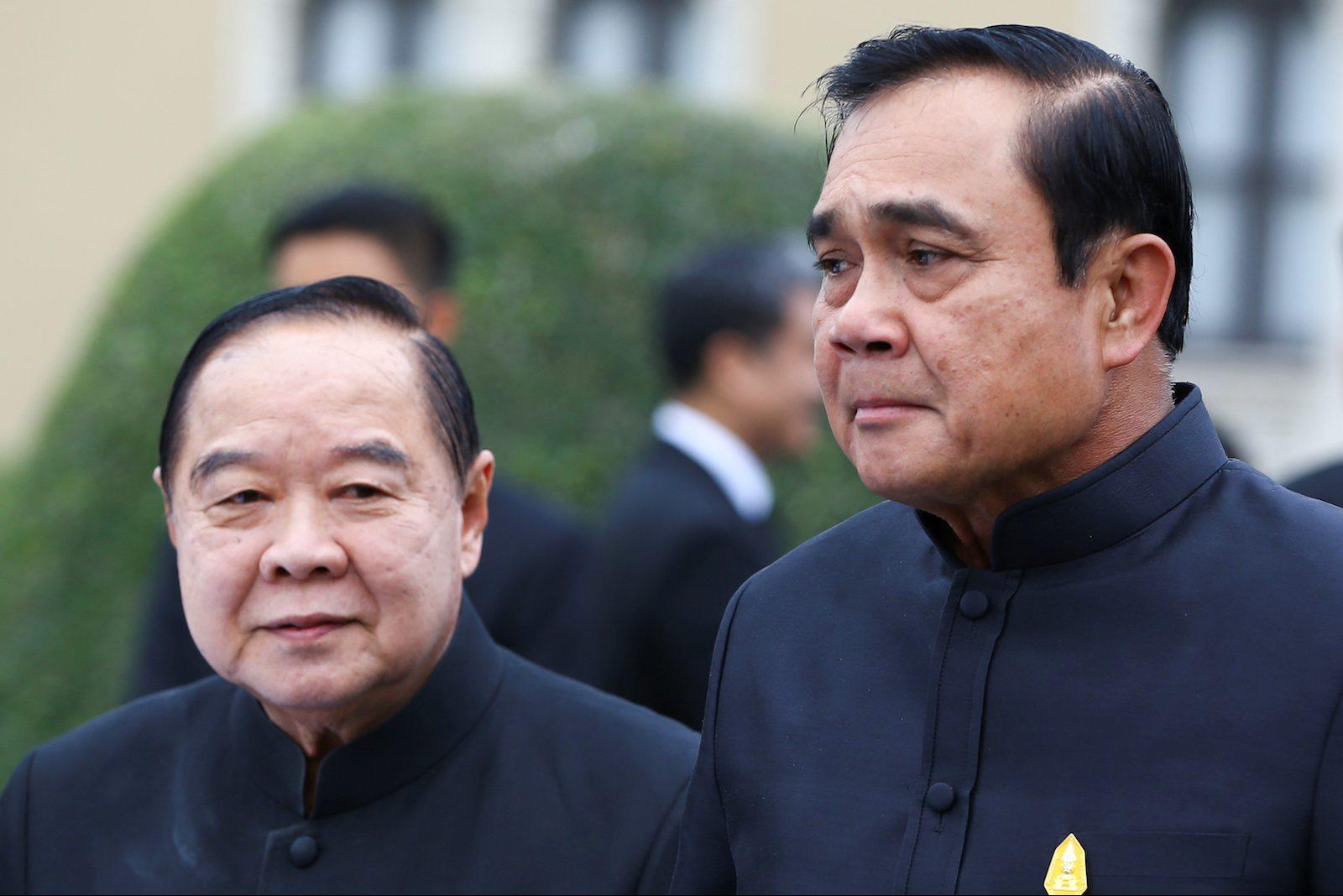
Thailand's caretaker Prime Minister Prayut Chan-ocha (R) and his deputy Prawit Wongsuwan look on before a weekly cabinet meeting at Government House in Bangkok, January 4, 2017. Photo: Twitter
Indeed, MFP campaigned partly on a promise never to join hands with the“uncles”, reference to UTN's Prayut, 69, and his famously somnolent deputy General Prawit Wongsuwan, 77, who now leads the PPRP and is still a potential prime minister candidate. That, and a late shift towards more ideologically-driven campaign messaging ingeniously disseminated over social media, cannibalized votes from traditional Peua Thai supporters.
Bangkok-based diplomats and local observers point to at least three pre-election meetings between Pojaman Na Pombejra, Thaksin's ex-wife and behind-the-scenes Peua Thai powerbroker, and top palace officials at which the“unity” government deal was reportedly discussed, including and especially in regard to whom would control the military in such a configuration.
Those discussions, if not negotiations, would explain Thaksin's repeated vow to return from exile in July, which would seemingly require a royal pardon to avoid extended jail time for his various criminal corruption convictions. Thaksin recently pushed back his homecoming timeline until the political situation is“stable.”
In another sign of a possible deal, a pending National Anti-Corruption Commission case against Thaksin over alleged Thai Airways procurement-related corruption dating back to 2003 was dropped today, just hours ahead of the parliamentary vote. Some also saw the anti-Thaksin Prayut's retirement from politics as paving the way for a deal with the more Shinawatra-friendly Prawit.
Whether Thaksin and Pojaman would be willing to overtly sacrifice Peua Thai's long-held anti-military stance and run the risk of alienating the party's“red shirt” stalwarts and supporters to bring Thaksin home and return Peua Thai to power as a de facto guardian, rather than challenger and disruptor, of conservative interests is unclear.
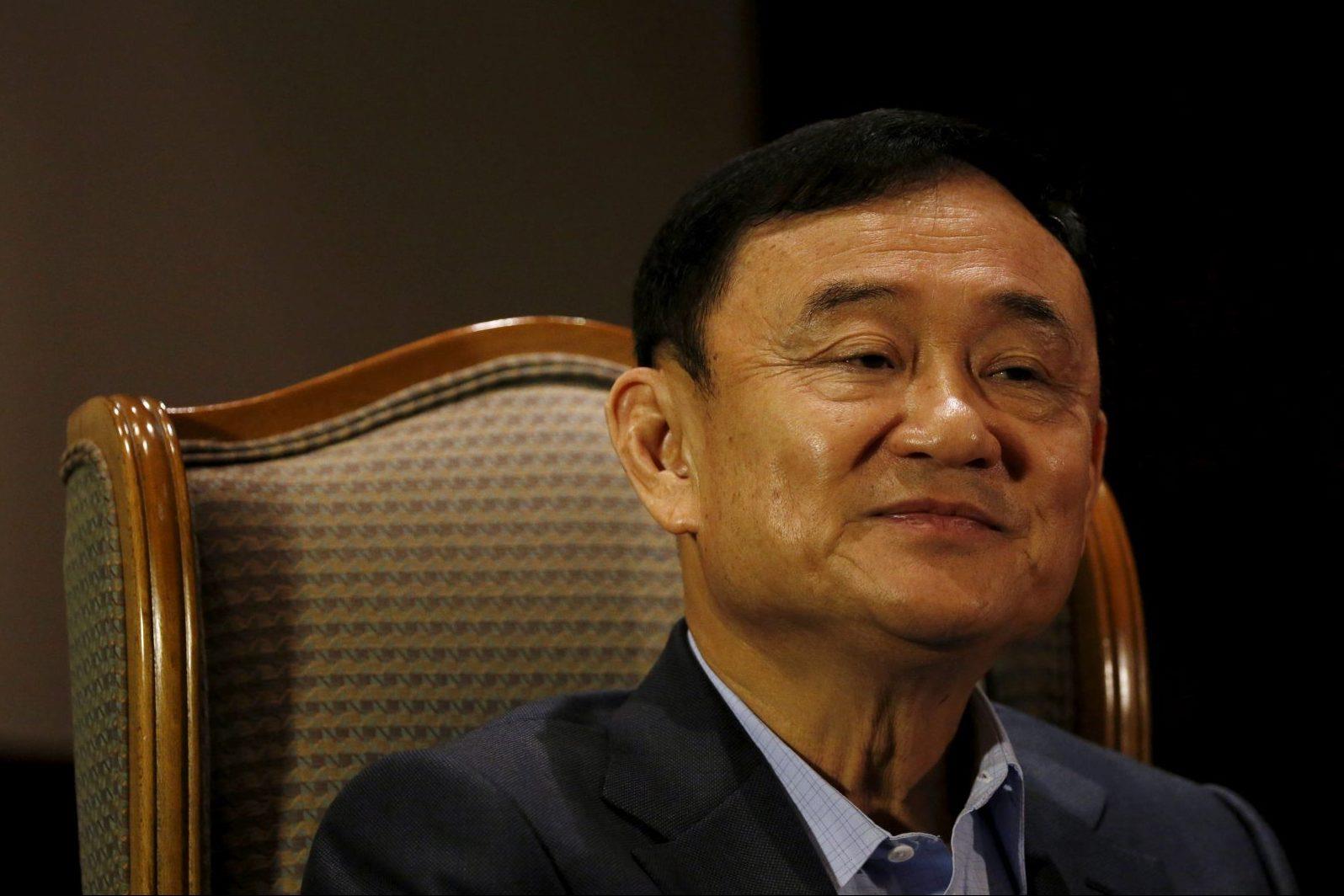
Former Thai Prime Minister Thaksin Shinawatra during an interview in Singapore February 23, 2016. Photo: Asia Times files / Reuters / Edgar Su
What is clear is that the conservative establishment comprised of the palace, military and top business families all see MFP's progressive reform agenda – from lese majeste reform to ending military conscription to upending big business monopolies – as a bigger existential threat than Thaksin's now-fading and rather listless Peua Thai.
The problem for Pita and MFP is that a Peua Thai-led coalition that excludes them, potentially in the name of stability with the hanging risk of Pita's disqualification and MFP's dissolution, the government would still be democratic in form, if not spirit and substance.
The conservative fix is clearly in against Pita, one in which Peua Thai may prove to be part and parcel, and one that may thus be hard for his growing legions of progressive supporters to legitimately protest as anti-democratic.
Like this:Like Loading... Related



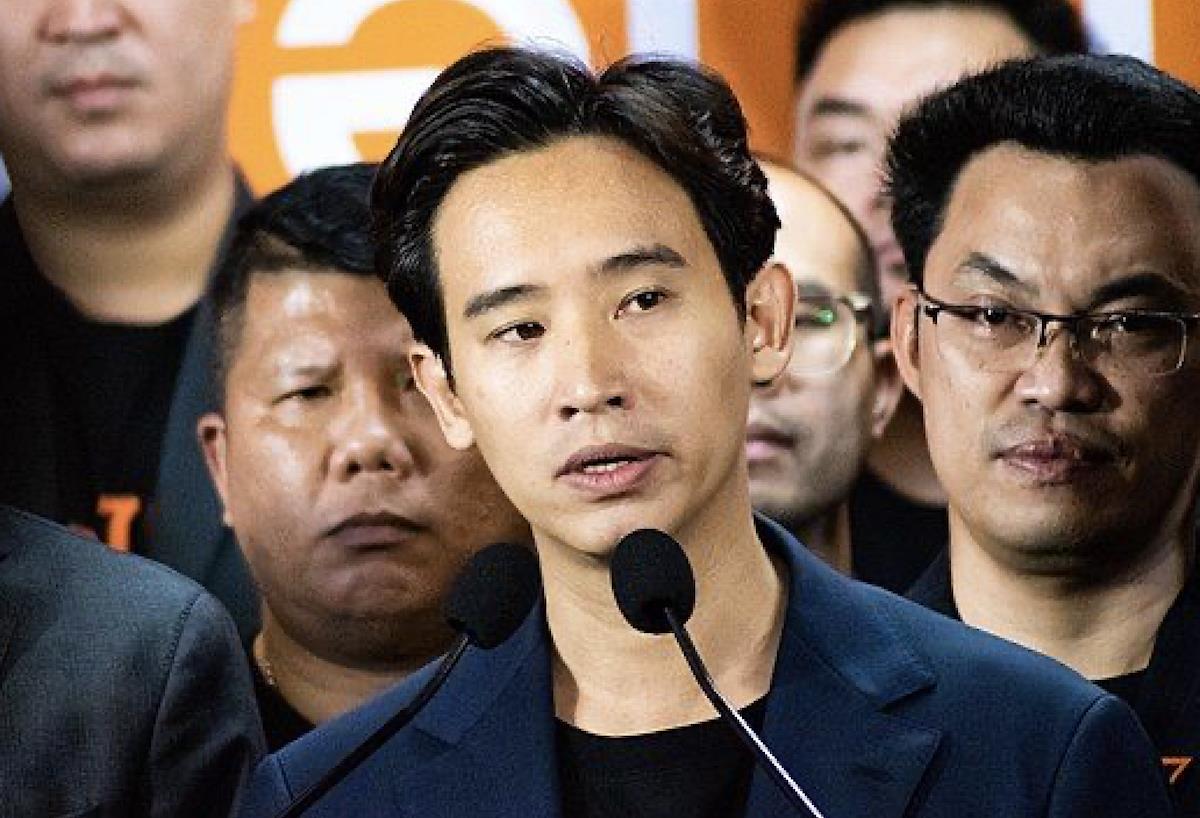


















Comments
No comment